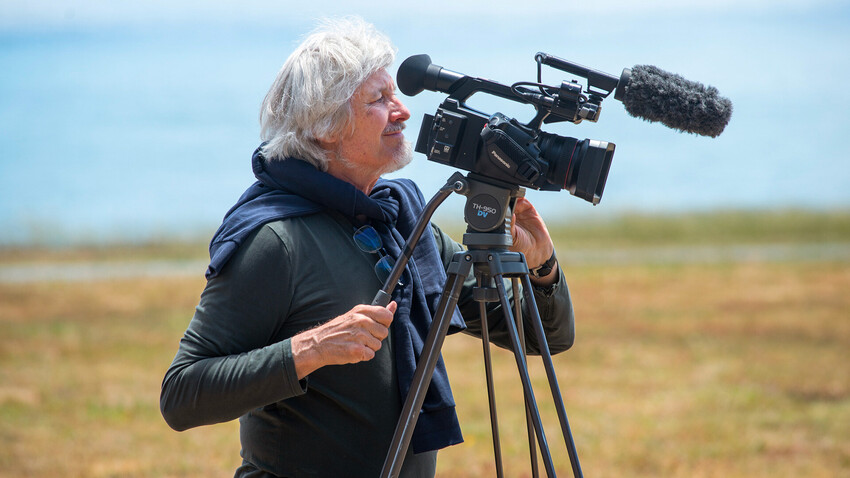
Documentary filmmaker John Mitchell Johnson became fascinated with Russia back in the 1990s. His 'Red Files' (1999) was recognized as "the best mini-series" by the International Documentary Association. He also made 'Yanks for Stalin' (1999) about Henry Ford and other Americans who helped Uncle Joe in the 1930s.
In 2020, after eight years of filming in Karelia and California, John released 'Saving North', a film about enthusiasts in Russia and the United States who are trying to save the disappearing culture of the Russian North (You can read about one of them, a British photographer who captures rapidly disappearing wooden churches, here).
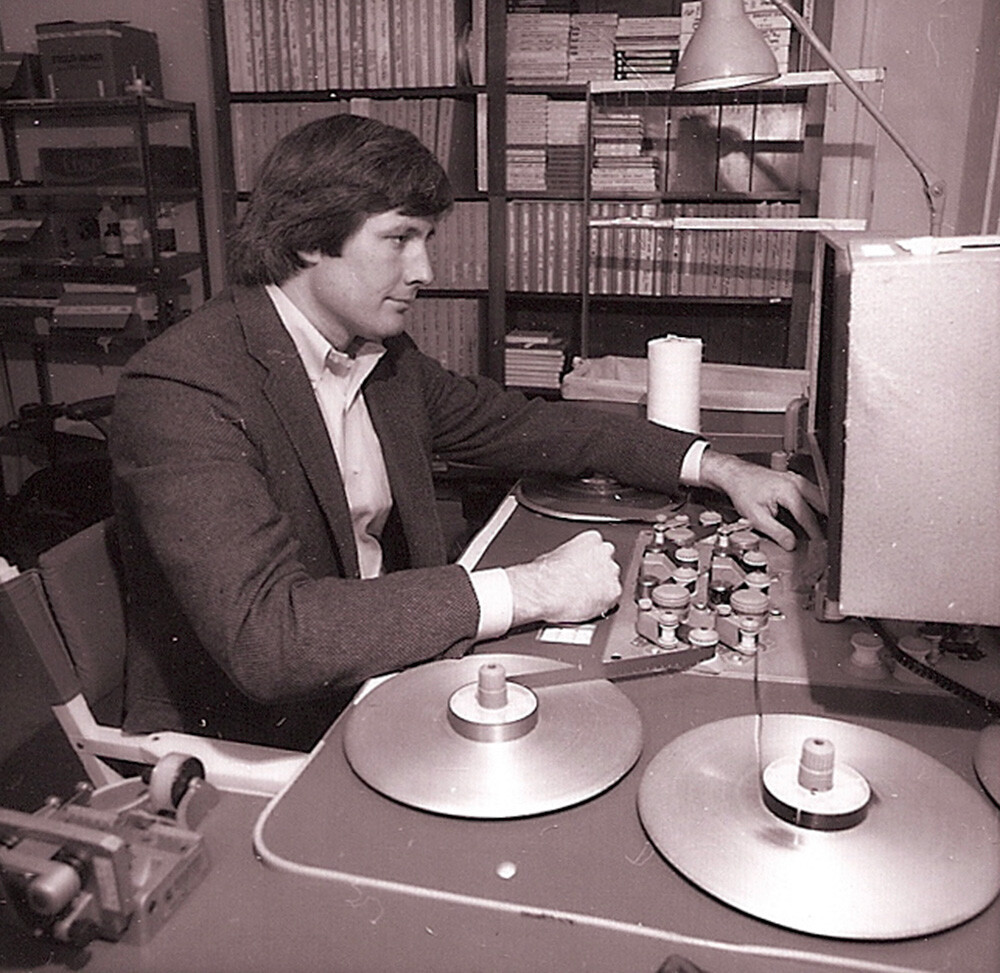
Mitchell in Texas in 1979
J. Mitchell Johnson personal archiveMitchell was born in Texas, the home of cowboys, and has settled in the Russian south, the home of the Cossacks. He has an apartment in the center of Rostov-on-Don and a dacha (country house) in a picturesque place on the shores of the Sea of Azov.
His village, called Merzhanovo, with its steep coastline is remarkably reminiscent of California’s Fort Ross, which Mitchell filmed for his documentary 'Saving North'. This wooden fortress on the west coast was actually built by Russians in 1812.
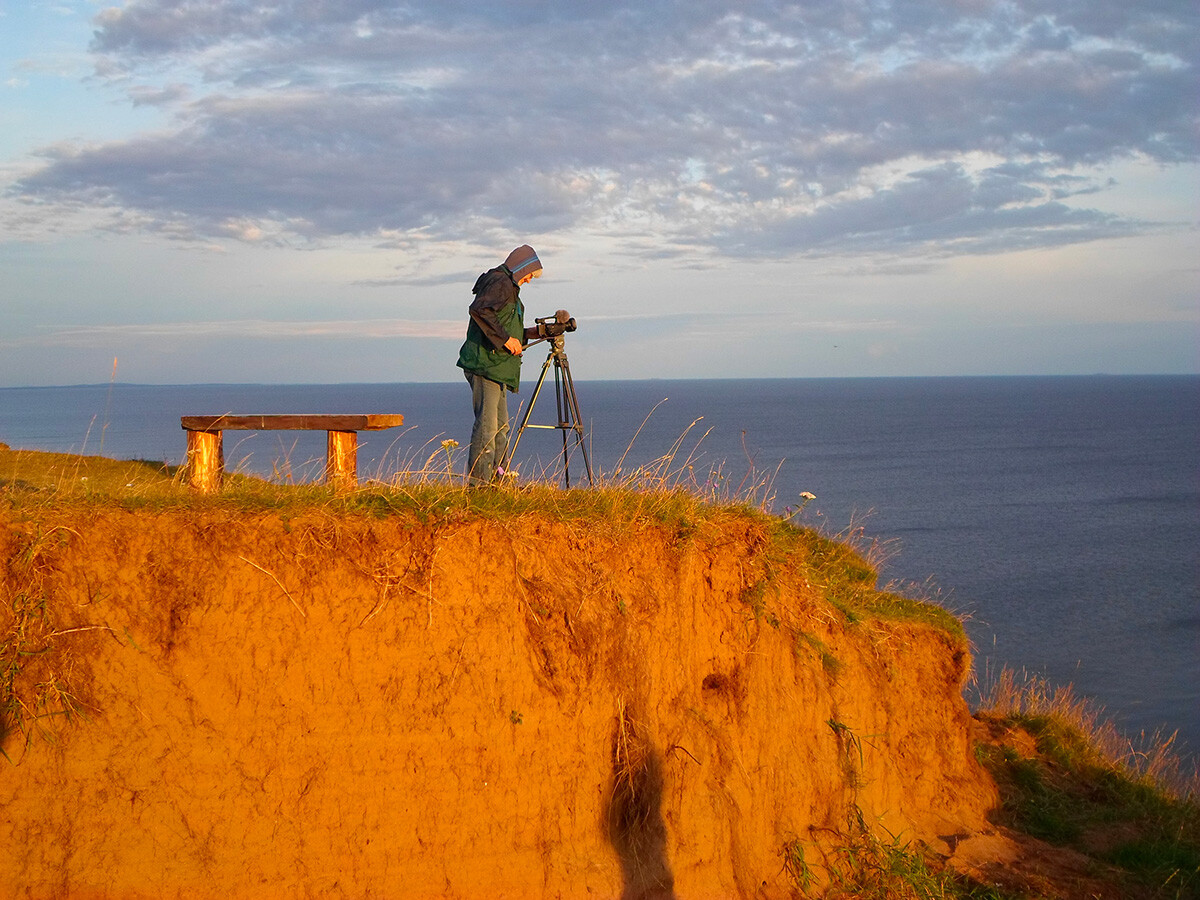
The Fort Ross coast
J. Mitchell Johnson personal archiveHe’s almost become one of the locals, much to their surprise – this american guy drives a Russian UAZ ‘Patriot’ off-road vehicle! Once, he even rescued some policemen, after their car got stuck, by pulling them out with it. He didn’t buy such a car by accident, however. He just realized it would be handy in Russia’s hinterland, as he himself got stuck once in a foreign rental car in the Karelian wilderness without any network signals.
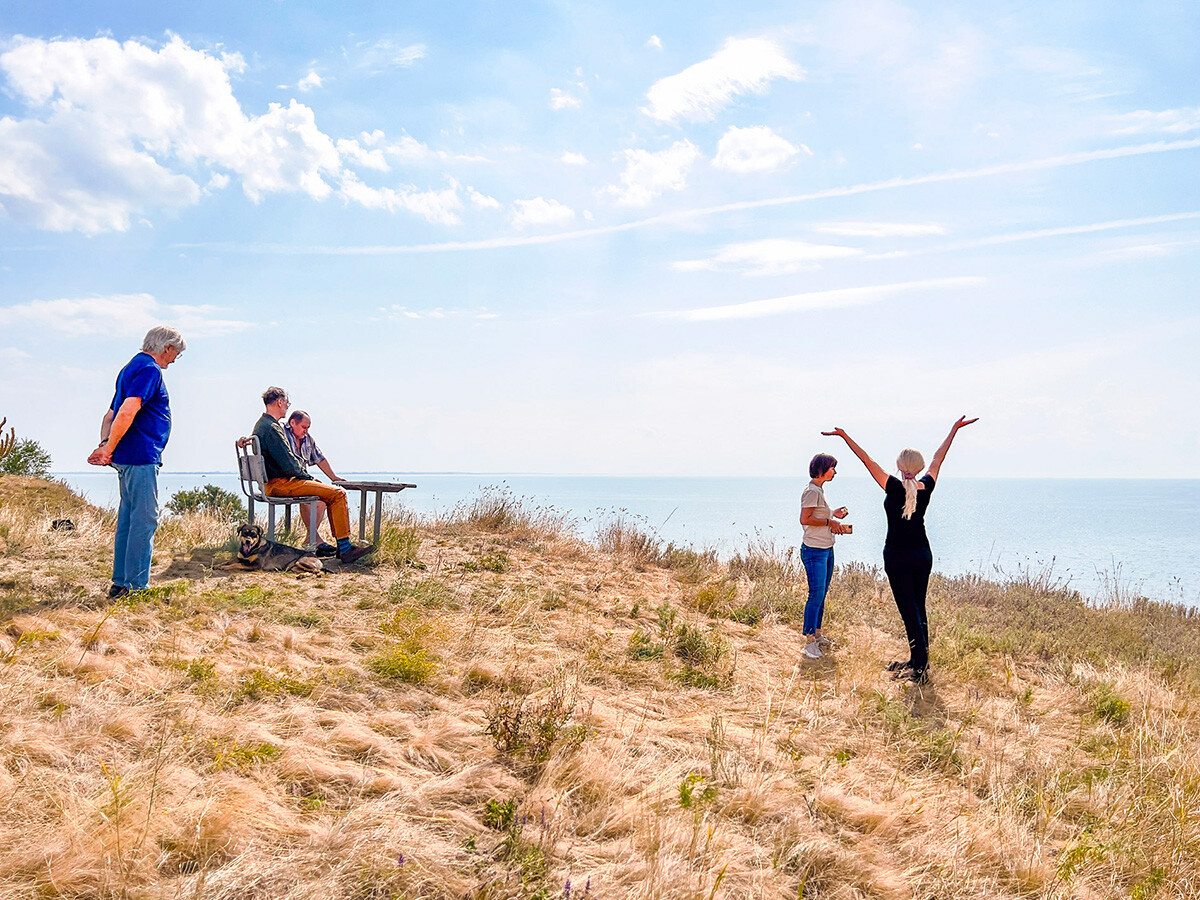
The sea shore in Merzhanovo, the place of power
Mikhail BolotovMitchell understands Russian, although he hardly speaks it himself. He is too lazy to learn it, “lazy like Oblomov”, he admits, mentioning the famous character of Ivan Goncharov’s 19th century novel. “I’m a very lucky guy to live here,” he says, even though he admits he misses his family and friends in his native Texas.
But, all of this wouldn’t have happened if not for a Russian woman named Svetlana… For Mitchell, she became a translator, a keeper of the hearth and a boss.
Mitchell and Svetlana met when she went to Texas for an internship – she was working in the advertising department of a magazine at the time. She didn’t speak English very well and, at their first meeting, they didn’t say a word to each other. But, something immediately "jolted" inside both of them (екнуло, yoknulo, as they say in Russian). They both had families and children from their first marriages, but now they have already been living together for 25 years.
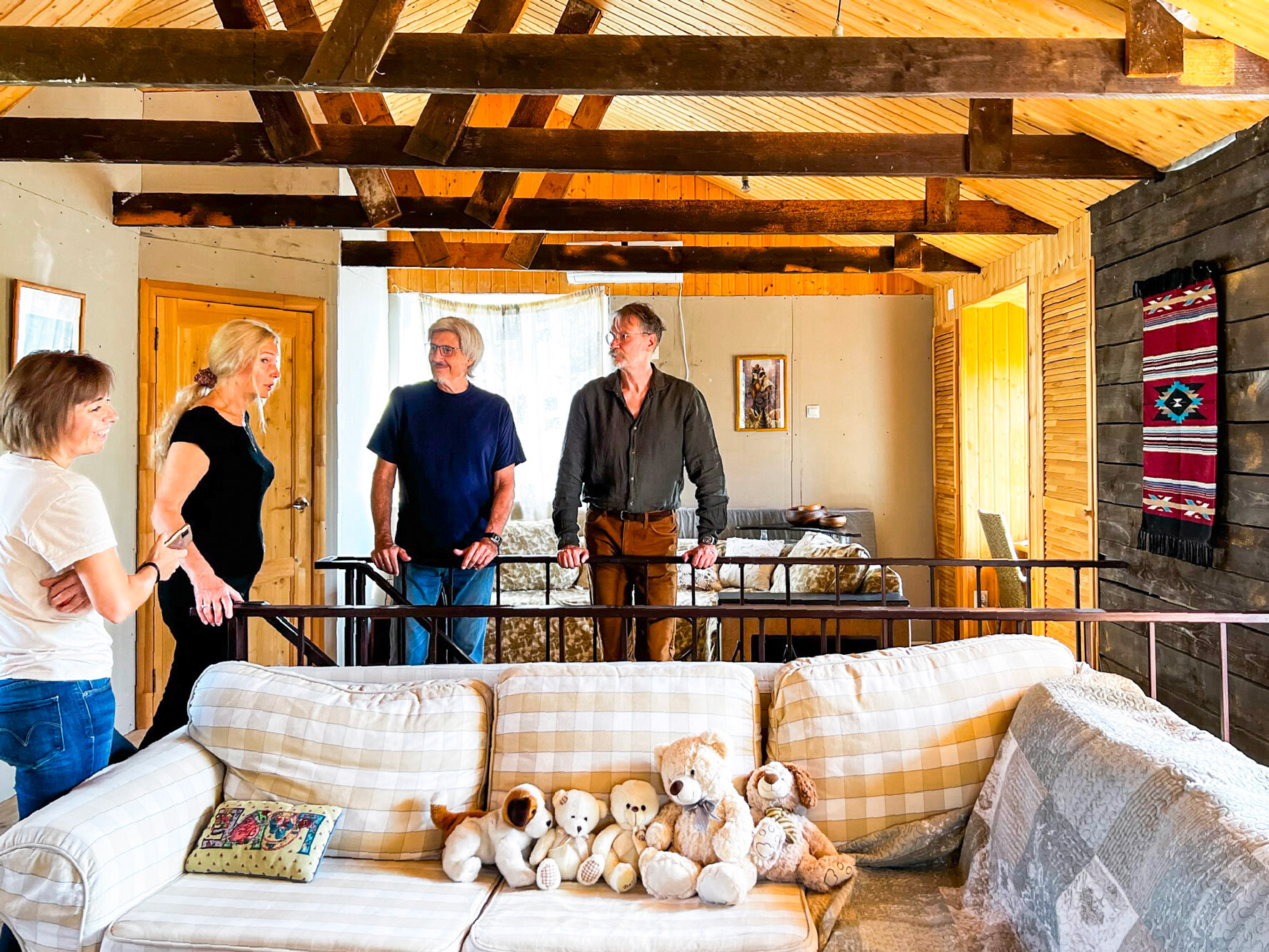
Mitchell Johnson and Svetlana (the two in the center) in their Russian rancho
Mikhail BolotovMitchell admires the serious inner strength that this petite woman with a soft smile has and, indeed, all Russian women have. She was even able to find him in a remote Karelian village when he went missing!
“Women make Russia work,” Mitchell believes. “I think everyone knows this, but no one talks about it. This leadership is implicit, a woman is always kind of behind, behind the back of a successful man. But, globally, she is the one who controls the situation.”
Mitchell thinks Americans are very mixed up about male-female relationships and their roles. "Wise women realize that a man should feel like a leader, but everybody knows the truth. It's such a secret, an open secret… And by respecting a woman, you get so much more than by putting her down below yourself. Svetlana is the real boss. But it's a shared power. It has my input and my power. Understanding all this, you can be happy."
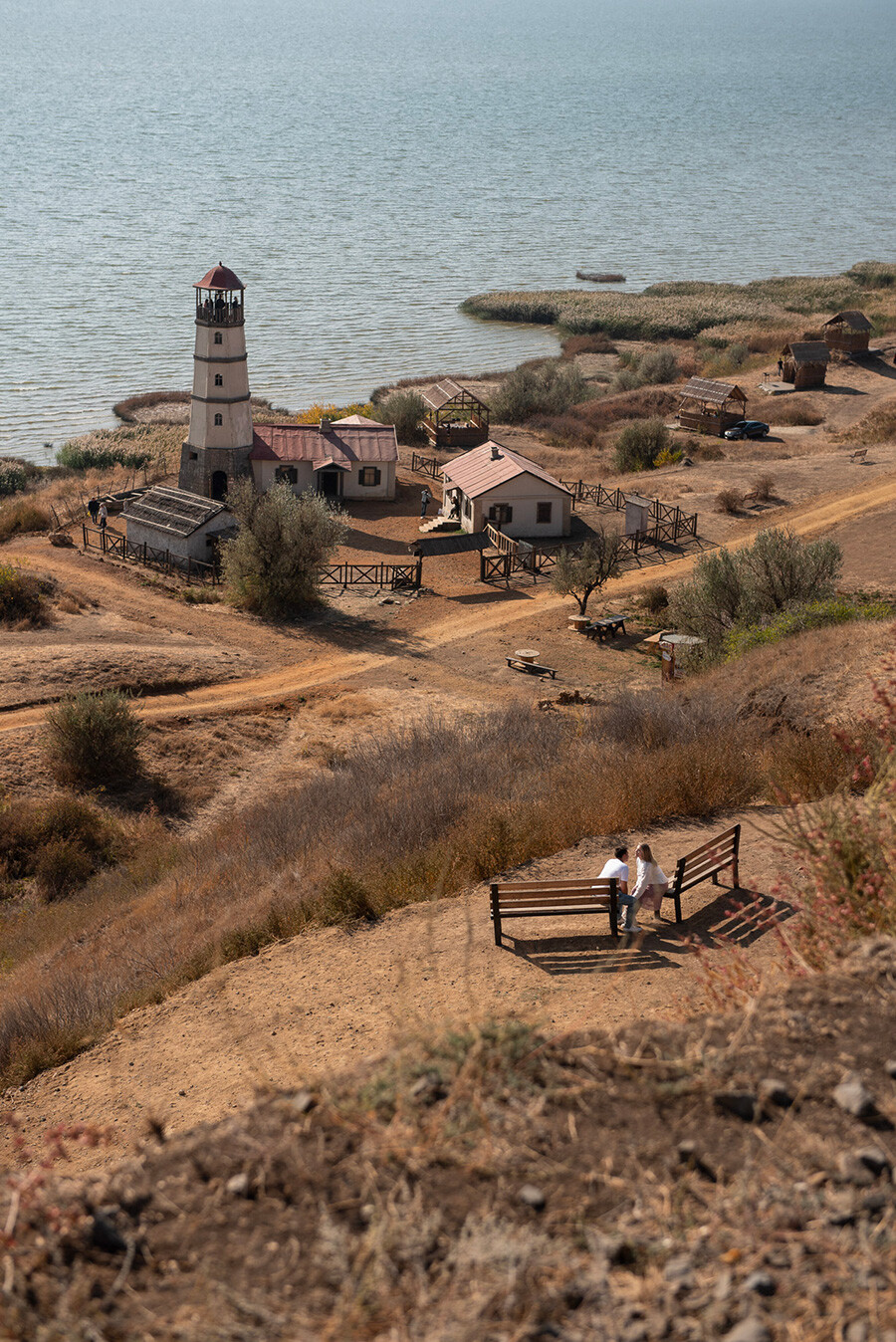
The village of Merzhanovo on the Sea of Azov
Mikhail MalyshevIn Russia, Mitchell fell in love with Georgian food (This cuisine of the former Soviet republic was very popular in the USSR, and it is still very much loved in Russia). The American also liked to drink hot tea, as all Russians do, not ice tea, as they are used to in America.
One of his favorite Russian writers is Nikolai Gogol and one of his favorite stories is Gogol's ‘The Overcoat’.
Mitchell also enjoys the Russian tradition of toasting; he finds something very spiritual in it. "I like it when dinners last five hours. With Americans, it's simpler. They pray and eat. They don't toast, just 'chin-chin'. But, in Russia, it's such an endless dinner. It goes on and on and it's very heartwarming. It's a really awesome tradition. I love that you have to put the empty bottle on the floor. In America, it keeps standing on the table. I like to take a seat before going on a trip [a Russian superstition - Ed.]. The banya is super, too. Actually, a lot of things," Mitchell says.
The American admits that his former compatriots think he is a bit strange, because he "went to a dangerous country, an enemy camp". But they see how happy he is. "They are jealous, I guess."
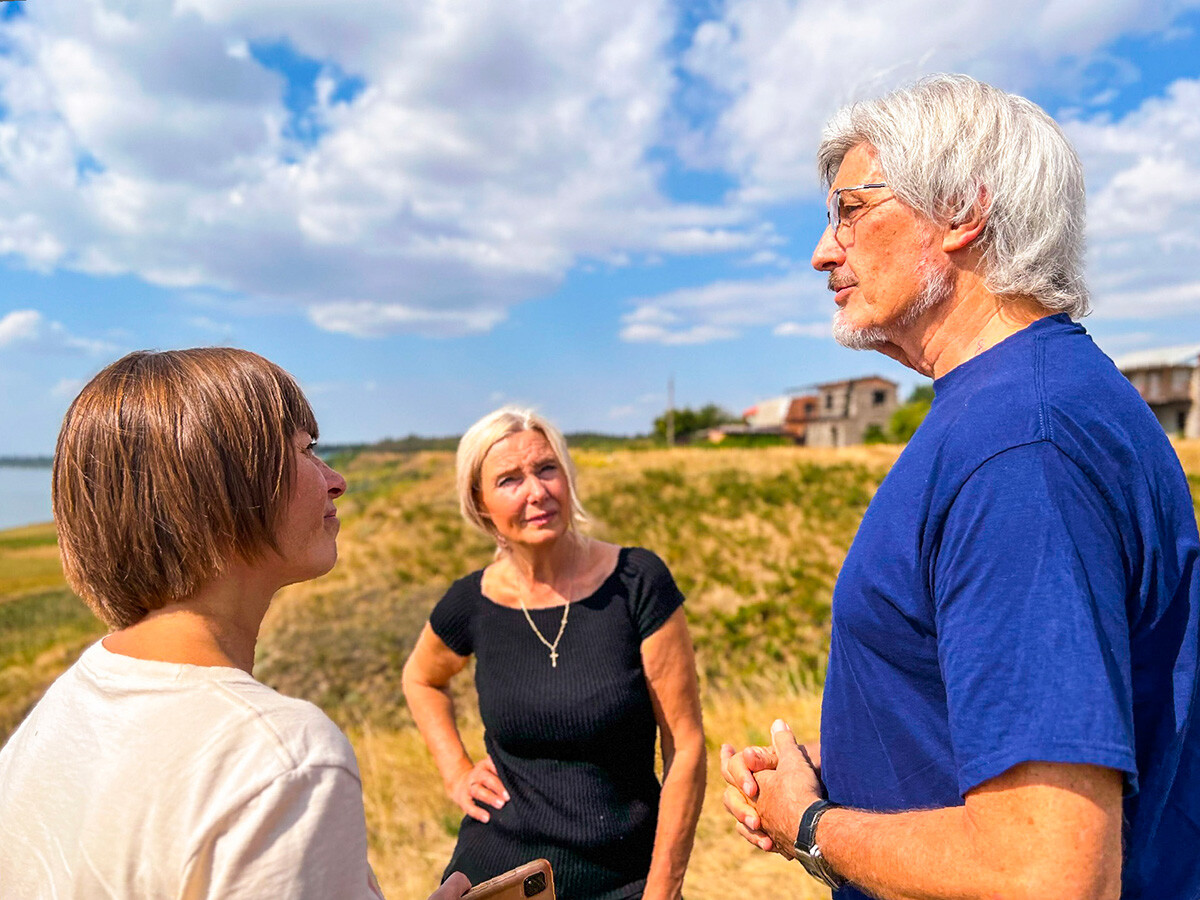
R-L: J. Mitchell Johnson, his wife Svetlana and interviewer Olga Maydelman
Mikhail BolotovAs for those 25 years of living in Russia, Mitchell claims he’s realized what the Russian character and the mysterious Russian soul are. "Russians are slow to react, slow to start, but once they have started, nothing can stop them. That's what I love about Russia: there's a balance between the simple and the complex."
He also likes Russian people. "People in Russia live in difficult conditions and that’s why they are always ready to help each other. They are kind and their solidarity is stronger than in other countries. Perhaps, because they grew up in this tradition of community. Collectivism is part of Russian history. In the U.S., people are more individualistic: it's when you don't need anybody, you're so alone, independent. And, in fact, it's an illusion… Of course, there are bad people here, too. But, I was mostly lucky. Anyway, for me, Russia is a very safe place!"
The article was originally published in Russian by Olga Maydelman for the Nation magazine.
If using any of Russia Beyond's content, partly or in full, always provide an active hyperlink to the original material.
Subscribe
to our newsletter!
Get the week's best stories straight to your inbox